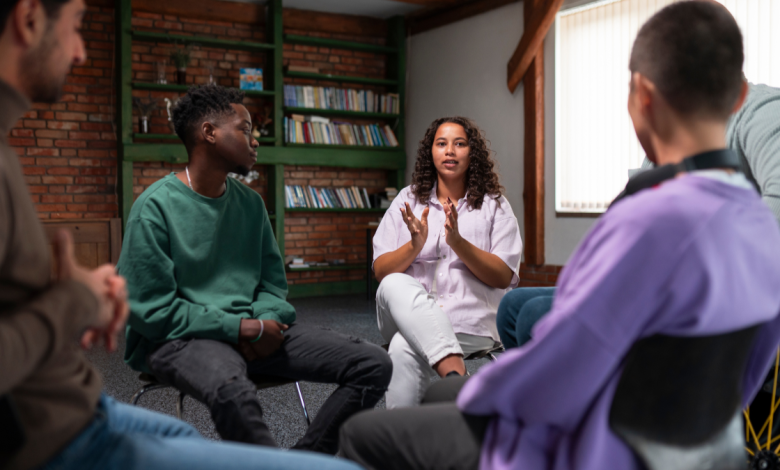Top Helplines and Support Groups for Gambling Addiction in South Africa

Gambling addiction, also called compulsive or problem gambling, is when someone can’t stop betting, even when it’s causing serious harm. It’s classified as a behavioural addiction and often goes hand-in-hand with anxiety, depression, or substance abuse.
According to the National Responsible Gambling Foundation (NRGF), about 5% of South African gamblers show signs of problem gambling. This growing issue affects individuals, families, and entire communities.
ALSO READ: How Family and Friends Can Support Someone with Gambling Problems
Common Signs of Gambling Addiction
It’s important to spot the warning signs early. These may include:
- Obsessively thinking about gambling
- Needing to bet more to feel excited
- Lying about gambling habits
- Chasing losses
- Borrowing money or stealing to gamble
- Neglecting work, school, or family responsibilities
- Feeling anxious or irritable when unable to gamble
If you or someone you know shows these signs, reaching out for help can make a big difference.
Where to Get Help: Top Helplines in South Africa
Here are the most trusted and accessible helplines in South Africa offering free, confidential support:
1. National Responsible Gambling Programme (NRGP)
- Toll-free Helpline: 0800 006 008
- Service: 24/7 counselling by trained professionals, referrals for free treatment, and family support.
- Website: www.responsiblegambling.co.za
2. Lifeline South Africa
- Contact: 0861 322 322
- Service: Counselling for a variety of emotional issues, including gambling-related stress, depression, and addiction.
- Website: www.lifeline.org.za
3. Gamblers Anonymous South Africa
- Phone: 0861 111 235
- Service: Peer support groups based on the 12-step recovery program. Free and anonymous meetings.
- Website: www.gamblersanonymous.co.za
4. South African Depression and Anxiety Group (SADAG)
- Helpline: 0800 567 567
- Service: Mental health support with trained counsellors. Many people with gambling addiction also struggle with depression or anxiety.
- Website: www.sadag.org
Support Groups and Treatment Options
Gamblers Anonymous (GA) Meetings
These weekly meetings take place in many cities and towns across South Africa. They provide a safe, non-judgemental space where people can share their experiences and support each other through recovery. Find a meeting near you via Gamblers Anonymous South Africa.
Professional Therapy and Counselling
Therapists trained in treating gambling addiction often use Cognitive Behavioural Therapy (CBT), which helps people change the thought patterns that lead to harmful gambling behaviour. You can find a registered therapist through:
Rehabilitation Centres
If you need intensive care, rehab centres like SANCA (South African National Council on Alcoholism and Drug Dependence) offer structured treatment, including:
- Group therapy
- Individual counselling
- Family education
- Life skills training
Support for Family and Friends
Gambling addiction doesn’t only affect the person gambling—it impacts their loved ones too. If someone close to you is struggling:
- Stay informed and patient.
- Avoid judgement and encourage open communication
- Suggest professional help
- Manage joint finances carefully
- Consider joining a support group like Gam-Anon, which offers help for families of problem gamblers.
Why Getting Help Early Matters
Ignoring the signs of gambling addiction can lead to:
- Crushing debt
- Legal problems
- Mental health breakdowns
- Relationship and family conflict
The earlier someone gets help, the easier it is to reverse the damage and rebuild a healthy life.
CHECK OUT: How to Avoid Gambling Addiction: Resources and Help Available in Gauteng
Promoting Responsible Gambling
The best solution is prevention. The National Responsible Gambling Programme promotes tools like self-exclusion, setting betting limits, and offering educational resources to encourage safer gambling habits.
Gambling addiction is a serious but treatable condition. Whether you’re directly affected or supporting someone who is, you are not alone. With the right support, recovery is possible. Reach out to the helplines and support groups mentioned in this article and take the first step toward a healthier, happier future.
READ MORE: Youth Gambling Prevention Programs



